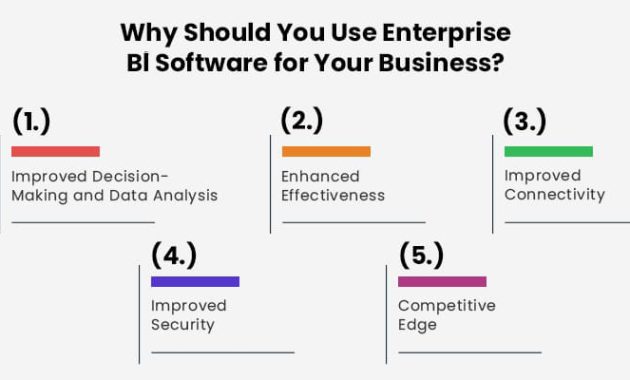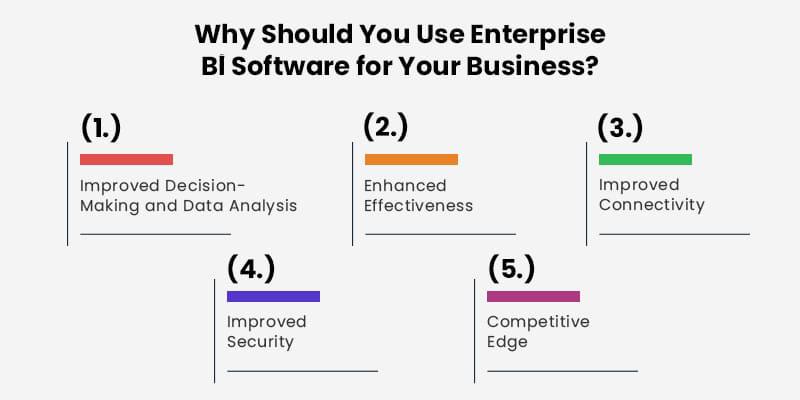
Master Business Intelligence Software with Real Examples: A Comprehensive Guide
In today’s data-driven world, the ability to harness the power of information is paramount. Businesses of all sizes are increasingly relying on sophisticated tools to analyze data, identify trends, and make informed decisions. This is where Business Intelligence (BI) software comes into play. This guide delves into the world of Business Intelligence software, offering a comprehensive overview of its functionalities, benefits, and real-world applications. The goal is to help you master Business Intelligence software and leverage its capabilities for your organization’s success.
Business Intelligence software empowers organizations to collect, analyze, and visualize data, transforming raw information into actionable insights. From tracking sales performance to identifying customer behavior patterns, Business Intelligence software provides a holistic view of business operations. This enables data-driven decision-making, leading to improved efficiency, profitability, and competitive advantage.
Understanding Business Intelligence Software
Business Intelligence software encompasses a range of tools and technologies designed to help businesses analyze data and make informed decisions. These tools typically include data warehousing, data mining, online analytical processing (OLAP), and reporting and visualization capabilities. The primary function of Business Intelligence software is to provide insights that can be used to improve business performance. It allows businesses to understand trends, identify opportunities, and mitigate risks.
The core components of Business Intelligence software often include:
- Data Warehousing: Centralized storage of data from various sources.
- Data Mining: Discovering patterns and insights from large datasets.
- OLAP: Analyzing data from multiple perspectives.
- Reporting and Visualization: Presenting data in an easy-to-understand format.
Key Features and Benefits of Business Intelligence Software
The benefits of implementing Business Intelligence software are numerous and can significantly impact an organization’s performance. Here are some of the key advantages:
- Improved Decision-Making: Data-driven insights enable more informed and strategic decisions.
- Enhanced Efficiency: Automating data analysis and reporting streamlines processes.
- Increased Profitability: Identifying opportunities to optimize operations and increase revenue.
- Competitive Advantage: Gaining a deeper understanding of customers, markets, and competitors.
- Better Data Visualization: Presenting complex data in an easy-to-understand format.
- Real-time Insights: Accessing up-to-the-minute data for quick decision-making.
Real-World Examples: Mastering Business Intelligence Software in Action
To truly understand the power of Business Intelligence software, let’s explore some real-world examples of how businesses are using it to achieve significant results. These examples demonstrate how to master Business Intelligence software and apply it effectively.
Retail Industry: Optimizing Sales and Inventory Management
A major retail chain implemented Business Intelligence software to analyze sales data, customer behavior, and inventory levels. The software helped them identify the best-selling products, optimize store layouts, and predict demand. This resulted in a significant reduction in inventory costs, increased sales, and improved customer satisfaction. The software allowed them to master Business Intelligence software and tailor their strategies.
For instance, the software revealed that specific product combinations were frequently purchased together. This insight led to strategic product placement, cross-selling opportunities, and increased average transaction value. The ability to analyze data at a granular level enabled them to make informed decisions, and therefore, master Business Intelligence software.
Healthcare: Improving Patient Outcomes and Operational Efficiency
Hospitals and healthcare providers are using Business Intelligence software to analyze patient data, track treatment outcomes, and optimize resource allocation. The software helps them identify areas for improvement, reduce errors, and enhance patient care. They can also master Business Intelligence software for efficient reporting.
For example, a hospital used Business Intelligence software to track readmission rates. By analyzing the data, they identified specific factors contributing to readmissions and implemented interventions to reduce them. This led to better patient outcomes, reduced costs, and improved operational efficiency. This is a great example of how to master Business Intelligence software.
Manufacturing: Streamlining Production and Reducing Costs
Manufacturers are leveraging Business Intelligence software to monitor production processes, identify bottlenecks, and optimize supply chain management. The software helps them improve efficiency, reduce waste, and lower costs. They master Business Intelligence software to gain a competitive edge.
A manufacturing company used Business Intelligence software to analyze production data and identify areas where downtime was occurring. By addressing these issues, they were able to increase production output and reduce manufacturing costs. They have successfully learned how to master Business Intelligence software.
Choosing the Right Business Intelligence Software
Selecting the right Business Intelligence software is crucial for achieving desired results. Consider the following factors when making your choice:
- Ease of Use: The software should be user-friendly and easy to navigate.
- Scalability: The software should be able to handle growing data volumes.
- Integration: The software should integrate with existing systems.
- Reporting and Visualization Capabilities: The software should offer robust reporting and visualization features.
- Cost: Consider the total cost of ownership, including software, implementation, and training.
- Support and Training: Ensure that adequate support and training are available.
Some of the leading Business Intelligence software providers include Tableau, Power BI, Qlik, and Sisense. Each offers unique features and capabilities, so research and compare different options to find the best fit for your needs. To master Business Intelligence software, it’s important to choose a tool that aligns with your business requirements.
Implementing Business Intelligence Software: Best Practices
Successful implementation of Business Intelligence software requires careful planning and execution. Here are some best practices to follow:
- Define Clear Objectives: Identify specific goals and objectives for implementing the software.
- Assess Data Quality: Ensure that your data is accurate, complete, and reliable.
- Develop a Data Strategy: Plan how data will be collected, stored, and managed.
- Provide Training: Train users on how to use the software effectively.
- Monitor and Evaluate: Regularly monitor the performance of the software and make adjustments as needed.
By following these best practices, you can increase the likelihood of a successful implementation and maximize the value of your Business Intelligence software investment. Learning how to master Business Intelligence software requires a strategic approach.
Future Trends in Business Intelligence
The field of Business Intelligence software is constantly evolving. Several trends are shaping the future of BI:
- Artificial Intelligence (AI) and Machine Learning (ML): AI and ML are being integrated into BI software to automate data analysis, provide predictive insights, and improve decision-making.
- Cloud-Based BI: Cloud-based BI solutions are becoming increasingly popular due to their scalability, flexibility, and cost-effectiveness.
- Self-Service BI: Self-service BI tools are empowering business users to analyze data and generate reports without relying on IT departments.
- Data Democratization: The trend towards making data accessible to everyone in the organization.
Staying informed about these trends is crucial for businesses that want to remain competitive and make the most of their Business Intelligence software investments. The future of Business Intelligence software is bright.
Conclusion: The Path to Mastering Business Intelligence Software
Business Intelligence software is a powerful tool that can transform the way businesses operate. By understanding its features, benefits, and real-world applications, you can leverage its capabilities to make data-driven decisions, improve efficiency, and gain a competitive advantage. Mastering Business Intelligence software requires a commitment to continuous learning and adaptation.
By following the guidance provided in this article, you can embark on a journey to master Business Intelligence software and unlock its full potential for your organization. This requires a combination of understanding the technology, implementing best practices, and staying abreast of the latest trends. With the right approach, you can harness the power of data to drive success. [See also: Related Article Titles]
